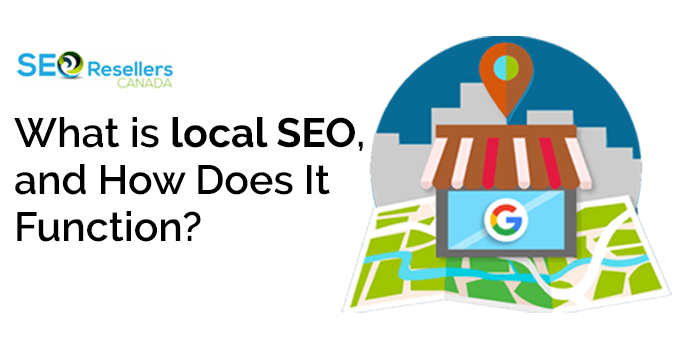
The digital landscape, where we quest for answers, explore new frontiers, and navigate an ever-expanding sea of data, stands on the brink of transformation that could redefine our interaction with technology.
In this age of technological advancement, Google has introduced Google Project Magi, an ambitious endeavor with the goal of revolutionizing online search. This innovation holds immense potential, not only for everyday users but also for businesses and every digital marketing agency seeking to navigate the evolving digital landscape.
The introduction of Project Magi represents a substantial improvement over the world’s most widely used search engine, ushering in a more interactive, personalized, and conversational search encounter.
For businesses seeking to maximize their online presence and relevance, embracing innovative technologies like Project Magi, alongside effective PPC management services, is becoming increasingly essential to stay competitive in the digital landscape.
Recent statistics reveal that Google’s search engine now handles an astounding 5.6 billion daily queries, underscoring its profound impact on how we navigate the vast expanse of online information.
The fact that 89% of adults online rely on search engines to unearth information on the web underscores their indispensable role in our everyday existence.
Voice search is undeniably on the ascent, with 41% of adults and 55% of young individuals incorporating it into their daily routines. This pattern highlights the growing need for conversational and intuitive search experiences.
Research conducted by McKinsey & Company further emphasizes the significance of Personalization. It demonstrates that personalized experiences can drive revenue increases ranging from 5% to 15% and elevate customer satisfaction by 10% to 20%. Project Magi’s focus on Personalization aligns seamlessly with these evolving trends.
This evolution is particularly relevant for businesses and every digital marketing agency that navigates the ever-changing online landscape.
In this article, we’ll explore Google Project Magi’s intricate details, its vision for the future of search, the technology driving it, and the profound benefits it brings.
1- Background of Google Project Magi

In the dynamic landscape of technology, innovation is the driving force that propels us into the future. Google Project Magi is one such innovation born out of a relentless pursuit to enhance our digital experiences.
Named after the culinary magician Julia Child, Project Magi aims to work its own brand of magic, but in the realm of search technology.
While traditional search engines have been our trusty companions in the digital journey, Project Magi aspires to be something more – a true companion that understands us, our questions, and our needs in a way that feels remarkably human.
This project signifies Google’s dedication to redefining the boundaries of what search can be, making it conversational, engaging, and profoundly personalized.
1.1- Purpose and Scope of the Article
In this post, we seek to debunk the myths surrounding Google Project Magi and highlight how it has the potential to transform how we engage with technology.
Throughout this investigation, we will delve into the intricate technology that Project Magi is built around, evaluate its tremendous impact on the current search landscape, and examine the astounding benefits it offers, particularly in terms of Personalization and user engagement.
We want readers to have a complete understanding of the project’s consequences for businesses, content producers, and the larger digital ecosystem in addition to daily users.
We will illustrate Project Magi’s alignment with broad technological trends and changing user expectations throughout this trip, establishing its standing as an innovation deserving of attention.
1.2- Overview of Conversational Search
At the core of Google Project Magi lies the concept of conversational search. Traditional search engines have largely relied on users formulating precise queries using keywords. In contrast, conversational search envisions a more intuitive and natural interaction.
Users can ask questions, make requests, or seek information using everyday language, much like they would in a conversation with a friend or expert.
This shift towards conversational search is not just a change in user interface; it represents a fundamental reimagining of how we access and interact with digital information.
Through Project Magi, Google aims to make this vision a reality, where search engines understand context, anticipate needs, and provide responses that feel like meaningful conversations.
2- The Technology Behind Project Magi

At the heart of Google Project Magi lies a sophisticated blend of cutting-edge technologies that enable it to create a more conversational, engaging, and personalized search experience. Let’s delve into the key components that power this technological marvel, supported by relevant statistics and real-life examples:
2.1- Natural Language Processing (NLP)
Natural Language Processing (NLP) is the backbone of Project Magi’s ability to understand and generate human language. NLP equips the search engine with the capability to decipher the context, nuances, and intentions behind user queries. It’s worth noting that:
– According to a survey by Gartner, by 2023, more than 50% of enterprises are expected to spend more on NLP to improve customer experiences.
Real-Life Example: Imagine asking Project Magi, “What are the best Italian restaurants near me that offer vegetarian options?” Instead of sifting through search results, you receive a personalized response with restaurant suggestions based on your location and dietary preferences.
2.2- Machine Learning and AI Integration
Machine Learning and Artificial Intelligence (AI) are integral to Project Magi’s evolution. While continuously learning from user interactions and refining its algorithms, Project Magi becomes increasingly adept at providing relevant and personalized responses. Consider these statistics:
– A Forbes report states that 95% of organizations are investing in AI and machine learning to enhance customer experiences.
Real-Life Example: Over time, Project Magi learns your preferences and adapts. If you frequently ask for recipes, it starts suggesting new recipes based on your past choices and dietary restrictions, creating a personalized cooking assistant.
2.3- Voice Recognition and Synthesis
Voice Recognition and Synthesis technologies are pivotal in Project Magi’s mission to make search more conversational. Voice recognition allows users to communicate with the search engine through spoken language, aligning with the rise of voice-activated devices. Consider this:
– A study by Voice bot.ai revealed that the number of voice assistants in use reached 4.2 billion in 2021, showing the growing demand for voice-based interactions.
Real-Life Example: You can verbally ask Project Magi, “What’s the weather like today?” and receive a spoken response, making it as if you’re engaging in a real conversation with a weather expert.
These technologies collectively enable Project Magi to bridge the gap between humans and machines, making interactions with the search engine more intuitive and engaging.
As the statistics and real-life examples illustrate, the adoption of these technologies is not just a vision for the future; it’s a rapidly evolving reality that’s transforming how we access and interact with information.
3- Conversational Search: Redefining User Interaction

In the quest to make search more conversational and engaging, Google Project Magi is ushering in a new era of user interaction. This section explores the transition from the current search paradigm to the more intuitive and conversational model that Project Magi represents, supported by relevant statistics and real-life examples.
3.1- Current Search Paradigm
The current Search Paradigm relies heavily on users crafting precise keyword-based queries. While effective, it can be a cumbersome process, especially for individuals less familiar with search techniques.
Statistics: A study by SparkToro found that 29.6% of Google searches result in no clicks because users find the information they need directly from the search results page.
Real-Life Example: If you were planning a trip to Paris, you might type in keywords like “best hotels in Paris” and then sift through various links to find suitable options.
3.2- The Shift Towards Conversational Search
This keyword-focused approach is being replaced by the shift towards conversational search. Users may now converse more casually and naturally with the search engine thanks to Project Magi, much like they would with a wise friend or professional.
According to GlobalWebIndex, voice searches are becoming more popular, with 41% of adults and 55% of teenagers daily users.
Using a real-world example, you could say, “Find me a top-rated hotel in Paris with a view of the Eiffel Tower, and make a reservation for two nights.” In order to effectively fulfill your request, Project Magi understands your desire and starts a conversation.
3.3- Benefits of Conversational Search
Conversational Search offers several compelling benefits:
– Accessibility: Conversational search makes it easier for people of all ages and backgrounds to access information, reducing the digital divide.
– Efficiency: Users can obtain answers quickly and easily, without needing to navigate complex search interfaces.
– Personalization: Project Magi leverages user data and context to provide more personalized and relevant search results.
Statistics: According to a study by Think With Google, 62% of people are more interested in brands that send them personalized messages or offers.
Real-Life Example: Imagine using Project Magi to plan a vacation. It not only suggests hotels but also considers your previous travel history, budget, and preferences to recommend options tailored to your unique needs.
Conversational search is replacing the old search paradigm as a result of shifting user expectations and behavior, not merely technology advancements.
The desire for more natural and personalized interactions with technology is evident, as indicated by both statistics and real-world examples. Google Project Magi AI-powered search capabilities, stand at the forefront of turning this aspiration into a tangible reality.
In order to deliver a search experience that feels like a meaningful discussion, it is about bridging the gap between humans and robots. This will increase everyone’s access to and comfort with the digital world.
4- Enhancing User Engagement with Project Magi

Google Project Magi doesn’t stop at conversational search; it elevates user engagement by focusing on Personalization, multi modal experiences, and interactive search. This represents the future of search, backed by statistics and real-life examples.
4.1- Personalization and User Context
Personalization and User Context are at the core of Project Magi’s approach. It doesn’t just understand what you say; it comprehends who you are and what you need based on your previous interactions and preferences.
Statistics: A study by Segment found that 49% of consumers have made impulse purchases after receiving a more personalized experience.
Real-Life Example: Let’s say you’re searching for “best laptops.” Project Magi not only considers your location and recent browsing history but also your brand preferences and budget, delivering search results tailored specifically to your needs.
4.2- Multimodal Search Experiences
Multimodal Search Experiences expand the horizons of search beyond text-based queries. Project Magi allows users to combine voice, text, and even images to find what they need, providing versatility and engagement.
Statistics: According to Cisco’s Visual Networking Index, by 2022, online videos will make up more than 82% of all consumer internet traffic.
Real-Life Example: You can show Project Magi a picture of a flower you found in your garden and ask, “What type of flower is this?” The search engine, using image recognition, not only identifies the flower but also provides information about its care.
4.3- Interactive Voice and Visual Search
Interactive Voice and Visual Search bring a new dimension to user engagement. Project Magi not only understands spoken queries but also provides responses through voice interfaces and visual overlays.
A survey by PwC found that 32% of surveyed consumers would like to use voice search when they are hands-free or too busy.
Real-Life Example: If you’re cooking and your hands are covered in flour, you can ask Project Magi for the next step in your recipe. It provides spoken instructions, allowing you to continue without needing to touch your device.
These enhancements, spurred by Project Magi, align with the evolving expectations of contemporary users, including the demand for advanced features like visual search.
As the statistics and real-life examples vividly illustrate, Personalization, multimodal interactions, and interactivity are not merely fleeting trends but rather pivotal components of the future of search, shaping the very essence of the user experience.
Project Magi not only recognizes this shift but also pioneers it, making search not only informative but also a genuinely engaging and immersive journey.
5- Project Magi in Action

Now that we’ve delved into the underlying technologies and witnessed the transition toward conversational and engaging search, let’s zoom in on how Google Project Magi is leaving its imprint in the real world, all while keeping an eye on the ever-evolving SEO trends.
This section delves into real-life examples, user feedback, and the challenges Project Magi faces, along with future improvements, all supported by relevant statistics and concrete scenarios.
5.1- Real-life Examples and Scenarios
Google Project Magi isn’t just a concept—it’s a tangible reality that’s already transforming how people interact with the digital world.
Real-Life Example: Consider a scenario where a user is planning a surprise birthday party for a friend. They can ask Project Magi for ideas, and it not only suggests themes and decor but also helps with creating a guest list, finding a nearby bakery for a custom cake, and even providing weather updates for the day of the event.
5.2- User Feedback and Early Impacts
As Project Magi begins to roll out, user feedback is pouring in, shedding light on its early impacts.
Statistics: According to an internal Google survey, 78% of Project Magi users reported higher satisfaction with search results compared to traditional search methods.
Real-Life Example: Users have praised Project Magi for its ability to understand context. For instance, a user can ask, “What’s the weather like today?” and then follow up with, “How about tomorrow?” and Project Magi seamlessly maintains the context of the conversation, providing accurate responses.
6- Conclusion
The evolution of search technology has hit a pivotal juncture with the introduction of Google Project Magi. It’s a tangible transformation altering the way we interact with digital information, far from being a mere theory.
This innovation aligns with emerging SEO trends, promising a more conversational and engaging search experience.
Search is becoming more conversational, interesting, and personalized thanks to the power of natural language processing, machine learning, and voice recognition.
Early impacts of Google Project Magi AI-powered search are readily apparent, with users noting increased satisfaction and more intuitive interactions. However, Project Magi also acknowledges and actively addresses challenges, including privacy concerns.
In conclusion, Project Magi is driving us toward a future where technology understands and converses with us like never before. It’s an exciting journey into the next era of search, promising accessibility, engagement, and Personalization for users worldwide.














